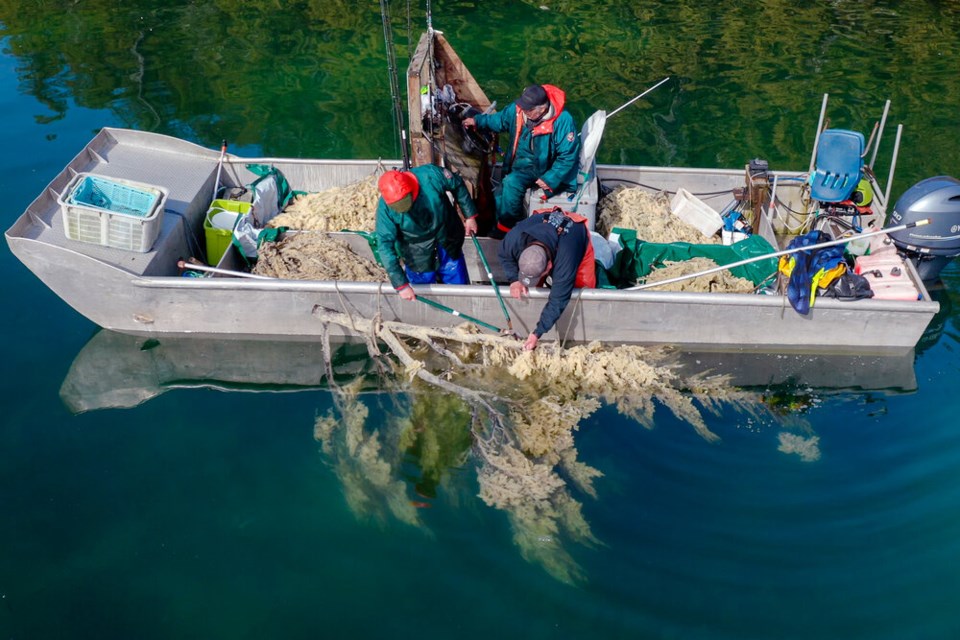Over the past five years, Canada’s fisheries agency has released several policies looking to integrate Indigenous knowledge systems with Western scientific approaches. The idea is to lean on generations of local experience to improve how fish populations are caught and left to thrive.
Despite those mandates, only one out of nearly 80 public policy documents produced by Fisheries and Oceans Canada (DFO) fully integrated Indigenous approaches, a recent study has found.
Published in the scientific journal Fish and Fisheries, the research used 13 indicators to analyze 78 public documents produced or co-produced by DFO to advise its fisheries management decisions over the last five years.
Of those, 87 per cent failed to meaningfully include Indigenous peoples and their perspectives. Another nine per cent of the documents reported Indigenous peoples were somehow included in research but did not include their “knowledge systems.” Three per cent of the documents included Indigenous knowledge systems, but privileged Western science, the study found.
The authors of the report included three Indigenous researchers who grew up on their traditional territories in New Brunswick, and Newfoundland and Labrador. Alejandro Frid, an independent ecologist and adjunct assistant professor at the University of Victoria, oversaw the research.
“We found the vast majority—just under 90 per cent—were not inclusive of Indigenous people and their knowledge systems in any way,” said Frid.
The study pointed to a modernization of Canada’s Fisheries Act in 2019. Some of the amendments of the act were designed to better uphold the rights of Indigenous peoples. One change authorized the Fisheries Minister to “consider” Indigenous knowledge in decision-making.
But according to evidence gathered by Frid and his colleagues, Canada's policies and strategies to include Indigenous peoples in fisheries management “remain largely aspirational.”
One document that showed signs of progress but ultimately fell short was a management strategy evaluation for Pacific herring in the Strait of Georgia and West Coast of Vancouver Island. DFO had engaged in a number of workshops with First Nations. The document also included some biomass targets and scales for spatial analysis in line with Indigenous perspectives.
But in the end, the process was initiated by DFO and privileged Western science over Indigenous knowledge. Out of the 48 people who attended a peer review advisory meeting, only eight were Indigenous.
The “single bright spot” documented in the study was found in the Haida Gwaii 'íináang | iinang Pacific Herring: An Ecosystem Overview and Ecosystem-based Rebuilding Plan. Published in 2022, the document was deeply engrained with Indigenous language, perspectives and principles, researchers found. It also heavily leaned on knowledge gathered by the First Nation since the 1970s.
The author noted that the herring rebuilding plan was only drafted after the Haida Nation successfully sued Canada for herring mismanagement in their territory.
Despite that initial collision of interests, incorporating Indigenous knowledge compiled by the Haida allowed the document to make several big leaps in improving fisheries practices.
According to Frid and his colleagues, the collaborative process improved knowledge of herring ecology; helped people understand the effects of different fisheries and gear types; and supported co-governance and decision-making processes.
“I think it’s a bright spot that DFO and other fisheries management agencies around the world can learn from,” said Frid. “DFO can engage properly when they choose to.”
He added: “They’ve already proved they can do it. They just have to do it.”
If DFO wants to replicate its experience with the Haida, the study’s authors recommend Canada enshrine into law the inclusion of Indigenous knowledge systems into fisheries advice and decision-making.
The study also calls for governments to “uphold, strengthen, or create” structures and processes that include Indigenous knowledge when decisions are being made around Canada’s fisheries.
Frid said he and his colleagues shared a pre-print version of their results with DFO. In meetings, he said everybody they talked to “completely agreed” with their conclusions.
“I sense that at very high levels of DFO there is a legitimate desire to do better and learn from their mistakes,” said Frid.
“We’re hoping that they keep that same attitude.”





